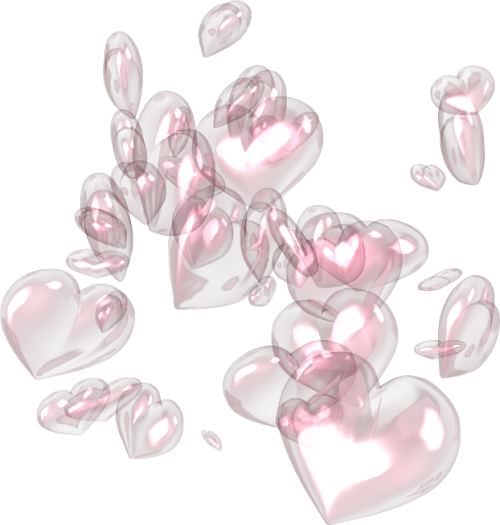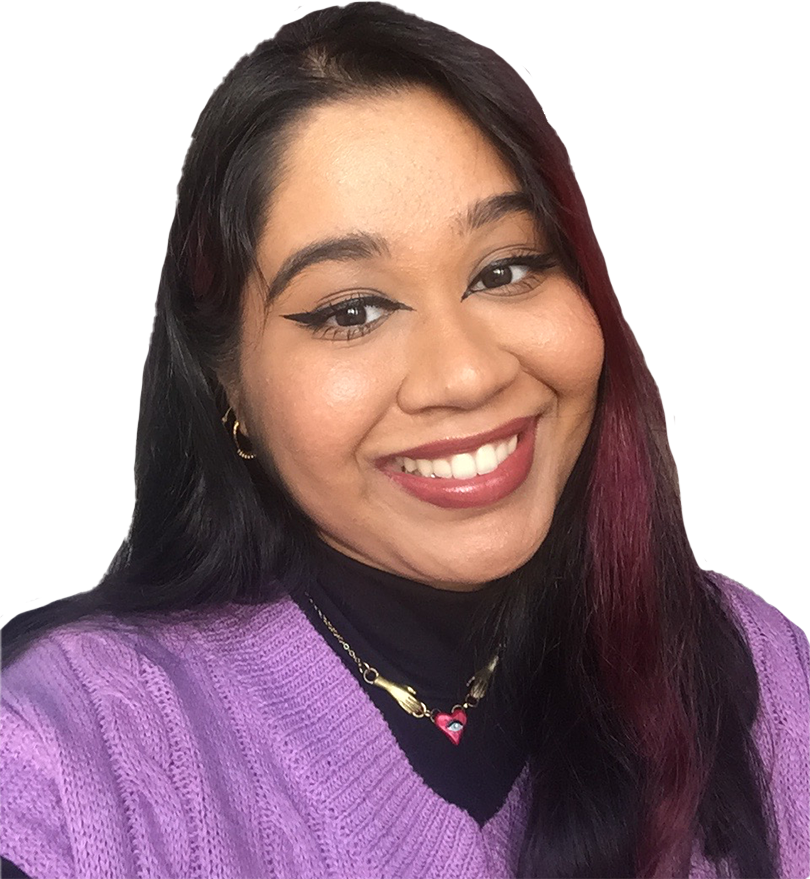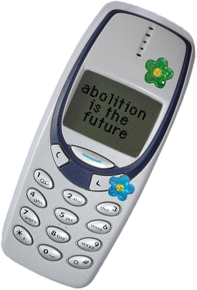


I LIVED A chunk of my life with distant relatives who were extremely wealthy but very abusive as well. I have this very distinct memory where my mom and I would sneak out of the house to go to a local movie theater. And when we came home, we would burn the movie tickets because we didn't want our relatives to find them. And I think that was when I truly realized what it's like to be under surveillance and to be controlled. Because when I look back at it now, I’m like, all we were doing is watching movies. And I think that's also why media is so powerful for me, because my mom I would watch movies and talk shows together – for instance, we would watch Oprah together everyday – but we had to be so careful.
tw: death threats

she/they

> All throughout my life, I've always been under surveillance, whether it was by men in my family or even other Muslim girls my age, teachers, even people younger than me.
I went to an all-girls public high school: it was a predominantly South Asian school, predominantly Pakistani and Muslim, and it was extremely homophobic. And I think that's also where I started to realize my queer identity because when I was hearing them say really horrible homophobic things, even though I didn't know what queerness was, it would hurt me. And I was like, why is it hurting me? Am I one of those people they're talking about? Later on, I started to meet more queer people. For instance, one of my ex-best friends was the first ever queer Muslim person I met and I remember her being so proud about it. And that's what made me realize who I am.
I REMEMBER ONE time, I interviewed this same ex-friend about her identities and the piece was on the front cover of the school newspaper. The day it came out, I started getting death threats. And death threats are something that are very normalized, too, because I received death threats all through high school: they would say, if this is Pakistan, I would have reported you, and you would be hanged. When that newspaper came out, they said, you're so disgusting, you can go to hell. We had a three day weekend, and a friend told me, don’t go to school (on Monday). I was like, why? She said, they're planning to jump you.
And so I had to be absent for a few days. I didn't tell my parents because I was scared. That experience made me realize I couldn't express myself, but it also fueled this fire inside of me, that one day when I'm safe, I would never let people control me. Their hate actually fueled me to want to find myself more. After high school, I came out to the world, even though I did receive a lot of backlash and that was really scary.
I’M STILL PROCESSING my gender identity. The thing that's really beautiful about gender is that there's so many forms and there's no one gender, I believe. Labels can be extremely powerful, obviously. But I also do think that gender and sexuality is so spiritual and it’s always fluid, changing, and infinite.
I THINK I'VE always had a really hard relationship with faith: from early on, distant relatives would use it as a tool to control me. I was never really taught that God is merciful. What I always heard was, you're going to hell or something is haram. I still don't really know much about Islam, other than what's haram. I think that really built a lot of turmoil inside of me, up until college.
> Like people would say Insha'Allah to me and I would feel nauseous, because I would just go back to my childhood self where I was afraid of religion because I thought I was going to hell.



BECAUSE OF MY WRITING, people have told me, wow, you seem really close to your parents. And I didn't really know that until it was brought to my attention, because as a teenager, I had a very rocky relationship with them. I think the reason why I'm really close to them is because the trauma that we all went through collectively, whether it was distant family members or assimilating in America in poverty, has kind of forced us to be close to each other. And the reason I’m really close to my mom especially was because the year after my senior year of high school, she fell really sick and I remember having to take her back and forth to the hospital. And when you're caring for someone as a child, you just see everything so differently now. Now during the pandemic, I live at home, and learning more about their pain has made me see them as human rather than just the people who brought me to this world.
I’m realizing that they too have their own dreams and wants and desires. And the thing is, I also have desires and wants that they won't necessarily understand. So it's been really beautiful to know them, but also extremely painful too, because it's like where do my desires play in all of this? For instance, with my queerness, now that I'm home with my parents it’s really complicated, because I'm not out to them. I find myself internalizing a lot of homophobia while also becoming more comfortable in my body and wanting to research more. And I think that's what happens when you're in a place where you're not allowed to express yourself. You find yourself wanting more and more, and wanting to learn more. So I've been watching movies nonstop with lesbians or queer people, but at the same time kind of indulging in self-pity because my parents are very homophobic.
People make the assumption that I organize within queer and trans spaces because of the homophobia that I've endured from straight people, but actually it's because of the horrible treatment that I endure and experience from queer folks. Once I was 18, I started going to events in New York for LGBT+ folks in the South Asian diaspora. And time and time again, I would be really mistreated by folks in the community. I would just get dirty looks. People wouldn't really want to talk to me. And I was really young! I remember very vividly meeting people who I used to look up to, like influencers and artists, and find them treating me like pure shit. And I started to realize that vanity is something that's really prevalent in the community. Because when I look at my 18 year old self, I was the biggest I ever was. I had the most acne that I've ever had and I just didn't look great. And I was also going through a lot. That was my senior year of high school and also the year when my family had a lot of financial problems. So I was wearing old clothes.
I already felt rejected from my straight Brown community. And then here I was again, feeling isolated, rejected from the people I thought would accept me the most. And as I started to meet more queer people, other folks started to say the same thing, that they don't feel comfortable at community events that are supposed to be for us. So I think that's when I had this revelation and wanted to create a community for people who are kind of misfits. So in 2019, I created the South Asian Queer + Trans Collective, a grassroots collective. It had a rocky start because a lot of people didn’t like the fact that we created it. People would show up to our events and then wait until everyone left and I was alone to harass me. But what made me want to organize is knowing how important radical kindness is and how important friendships are. Because the friendships in my life is what saved me and pushed me into who I am today.
Even with abolition: I think abolition is the future, but I feel like it won’t happen unless we’re kinder and care for each other. For example, maybe one of your neighbors doesn't have Wi-Fi and they can't do their assignments. Will you be willing to give them Wi-Fi? Or would you be willing to take care of your other neighbors or take care of their children?
Senior year of high school was the worst year of my life. But at the same time, I wouldn't change anything about it. Because I wonder: if I was to take all those experiences away, would I be able to see the world the way I do now and would I have this self-love and self-power and self-worth that I do?
I think because I've experienced silence for so long that I talk the most now, because I know what it's like to have my voice taken away. I don't take things for granted anymore because I know what it's like to have things taken from me. Being under constant surveillance, I wasn't really allowed to have friends. So now I realize how important friendships are, how important media could be, consumption of books and film, the freedom of choosing how you dress. Now I don't take anything for granted and I will not let people take my voice away from me ever again.
FABLIHA ANBAR (she/they) is a 21-year-old writer and community organizer. They were the creator and Editor-in-Chief of Sorjo Magazine, an online publication for and by the unconventional, which had over 100,000+ readers around the world. They are the youth coordinator for Arts & Democracy, an organization funded by the NYC Department of Cultural Affairs, where their main focus is cultivating a safe environment for immigrant youth to creatively express themselves. They are also the founder of the South Asian Queer + Trans Collective. You can explore their work and writing here.


> Radical kindness and empathy is my vision for the world.

And especially with my queer identity, I just felt so much shame. But now, years later, I’m seeing so many wonderful queer Muslims and seeing how religious they are. Because I always thought that in order to be queer, you need to strip yourself of your faith, your culture, and traditions. But I realize now that I can reclaim my religion on my own terms. So I've been really trying to learn and teach myself and just unlearn as much as I can.
Growing up in and around Kensington, which is a neighborhood with one of the largest Bangladeshi demographics in Brooklyn, I didn't really realize I was a child of an immigrant household because everyone around me was a child of an immigrant household. I actually thought it was the norm, and I didn't really meet white Americans until college. I look back now and I see how my family has tried so hard to assimilate. I remember my mom would always carry a dictionary and that she would look through my homework, not only to help me, but because she wanted to learn. Now she has super fluent English, but it makes me sad because I don't really know Bangla well.
I think my mom just accidentally didn't get to teach me Bangla because she was so busy trying to teach herself so many things in order to survive. And I think that’s why I didn't know much about the culture. I had to find out things for myself: I had to sit down and research about Bengali holidays and the Liberation War because no one really taught it to me. My parents were working all the time, they were on survival mode. I'm also now seeing that being lower income really has laid the foundation for my life. It is part of my identity. It's part of my life. It's part of how I move through the world and it also influences my political views like Marxism and abolition.
